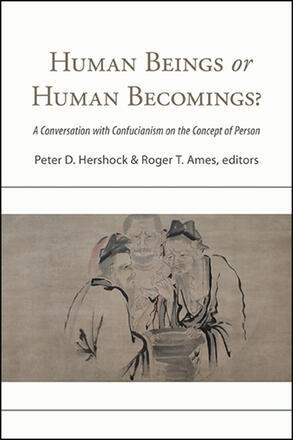
Human Beings or Human Becomings?
A Conversation with Confucianism on the Concept of Person
Alternative formats available from:
Argues that Confucianism and other East Asian philosophical traditions can be resources for understanding and addressing current global challenges such as climate change and hunger.
Description
Great transformations are reshaping human life, social institutions, and the world around us, raising profound questions about our fundamental values. We now have the knowledge and the technical expertise, for instance, to realize a world in which no child needs to go to bed hungry—and yet, hunger persists. And although the causes of planetary climate disruption are well known, action of the scale and resolution needed to address it remain elusive.
In order to deepen our understanding of these transformations and the ethical responses they demand, considering how they are seen from different civilizational perspectives is imperative. Acknowledging the rise of China both geopolitically and culturally, the essays in this volume enter into critical and yet appreciative conversations with East Asian philosophical traditions—primarily Confucianism, but also Buddhism and Daoism—drawing on their conceptual resources to understand what it means to be human as irreducibly relational. The opening chapters establish a framework for seeing the resolution of global predicaments, such as persistent hunger and climate disruption, as relational challenges that cannot be addressed from within the horizons of any ethics committed to taking the individual as the basic unit of moral analysis. Subsequent chapters turn to Confucian traditions as resources for addressing these challenges, reimagining personhood as a process of responsive, humane becoming and envisioning ethics as a necessarily historical and yet open-ended process of relational refinement and evolving values.
Peter D. Hershock is Director of the Asian Studies Development Program at the East-West Center. He is the author many books, including Valuing Diversity: Buddhist Reflection on Realizing a More Equitable Global Future, also published by SUNY Press. Roger T. Ames is Humanities Chair Professor at Peking University. He is the author of many books, including Human Becomings: Theorizing Persons for Confucian Role Ethics, also published by SUNY Press.
Reviews
"…this anthology is an excellent survey and, simultaneously, a thought-provoking reinterpretation of the Confucian tradition on what makes a person and how being a person could aid one in tackling some of the most disconcerting problems of the twenty-first century." — Religious Studies Review